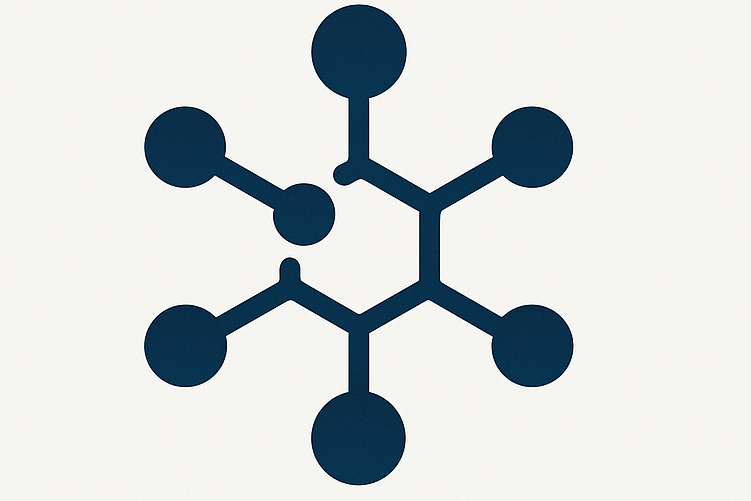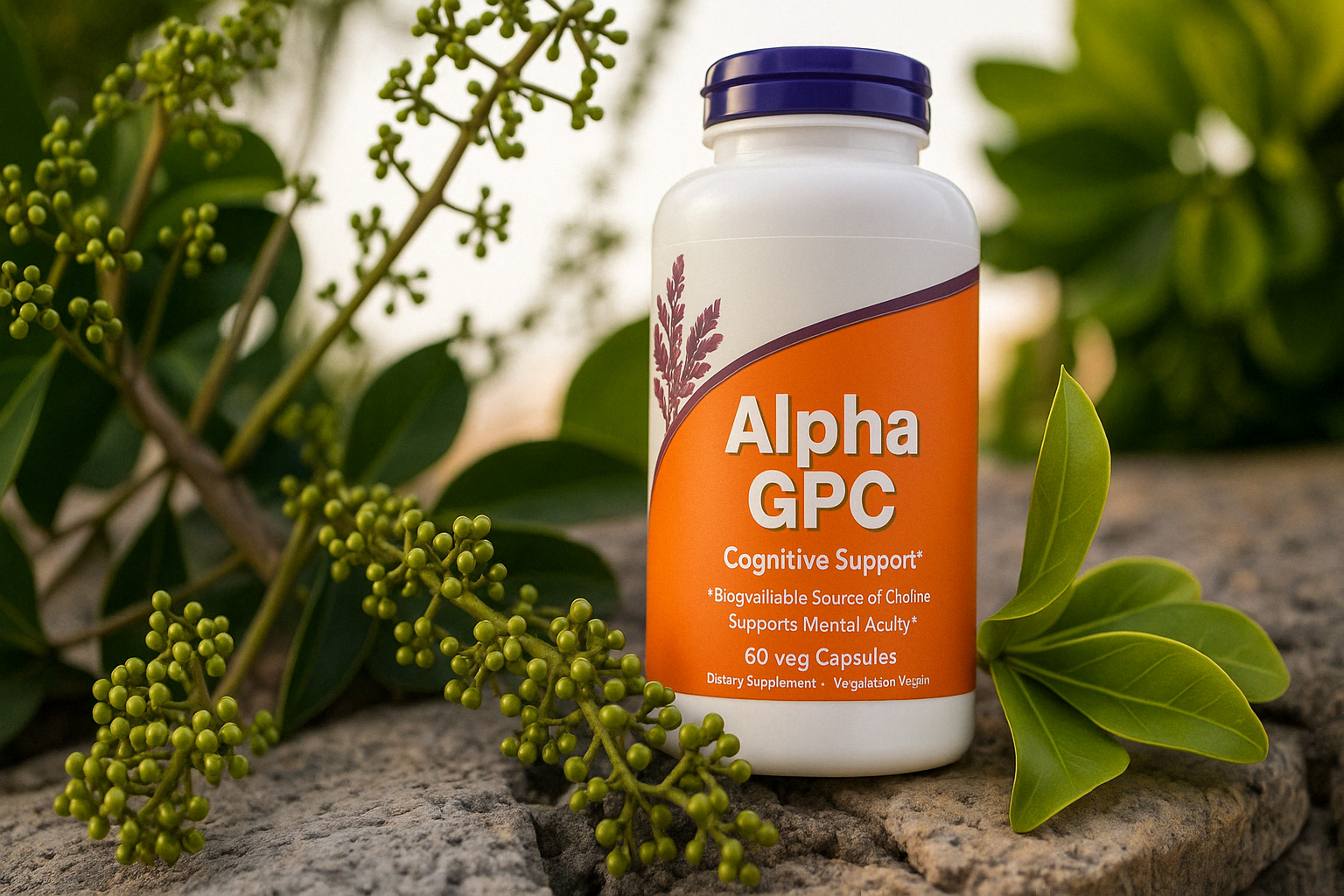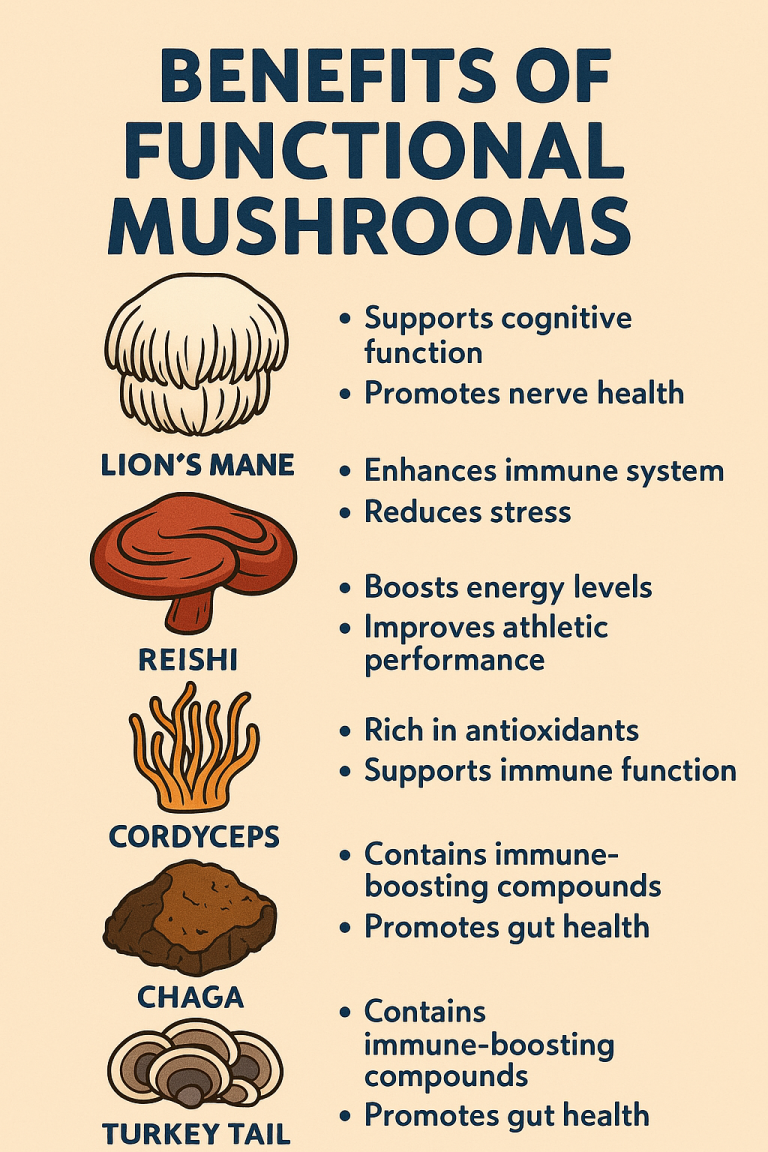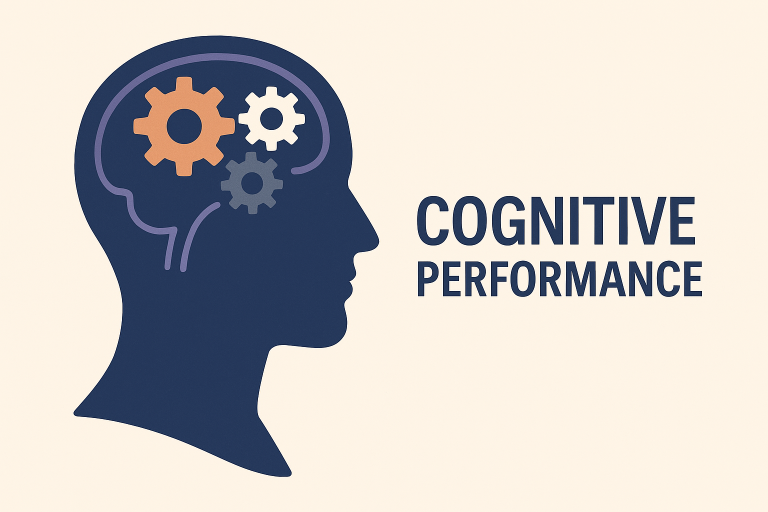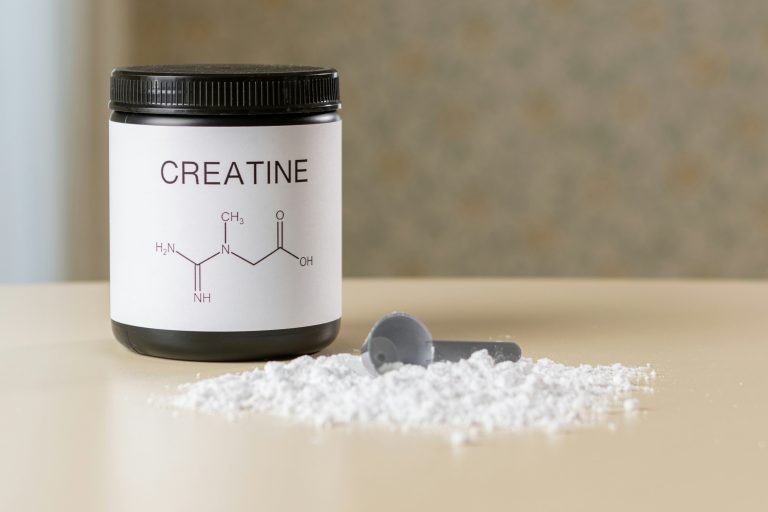Alpha GPC vs Citicoline: Key Differences, Benefits, and Uses
When looking for a supplement to boost brain power, many people compare alpha GPC and citicoline. These two popular options both help increase levels of choline, an important nutrient for memory, focus, and learning.
Alpha GPC is often chosen for quick mental clarity and physical performance, while citicoline is better known for long-term brain health and support of memory and motivation (Alpha-GPC vs Citicoline for brain power).
Alpha GPC breaks down in the body to release acetylcholine, a chemical needed for attention and muscle movement. Citicoline, sometimes called CDP-choline, supports memory and may help protect the brain over time.
People might feel a burst of focus from alpha GPC, but notice lasting benefits from taking citicoline regularly. Choosing between alpha GPC and citicoline depends on your goals and needs.
Some prefer the fast effects of alpha GPC, while others value the steady brain support from citicoline. Both are safe for most healthy adults when used as directed (Learn more about their unique benefits).
What Is Alpha GPC?
Alpha GPC, also known as L-alpha-glycerylphosphorylcholine or choline alfoscerate, is a dietary supplement used to boost choline levels in the body. It is valued for its ability to support cognitive health and brain function by providing a direct source of choline, an essential nutrient.
Chemical Structure and Properties
Alpha GPC is a natural choline compound found in the brain and in some foods. Its full name, L-alpha-glycerylphosphorylcholine, highlights that it contains both choline and glycerophosphate.
These elements help it move easily into the brain. In the body, Alpha GPC serves as a precursor to acetylcholine, a key neurotransmitter involved in learning and memory.
This ability to increase acetylcholine makes it different from other choline supplements. Alpha GPC is also considered more bioavailable than many other choline forms, meaning the body can use it more efficiently.
It is water-soluble, so it gets absorbed and delivered to the brain quickly.
How Alpha GPC Works in the Body
After taking Alpha GPC, it is rapidly broken down and absorbed into the bloodstream. When it reaches the brain, Alpha GPC helps produce acetylcholine.
Acetylcholine is important for memory, focus, and many mental tasks. Unlike some choline supplements, Alpha GPC can cross the blood-brain barrier with ease.
This means it can boost choline levels in the brain more effectively compared to simpler forms such as choline bitartrate. Alpha GPC may also support the body by encouraging the repair of cell membranes.
This helps maintain proper brain cell structure. These functions explain why Alpha GPC is commonly used for supporting cognitive functions in both younger adults and seniors.
Sources and Forms of Alpha GPC
Alpha GPC occurs naturally in small amounts in the body. It’s also present in foods like organ meats, but the amounts are low.
Most people rely on it as a dietary supplement for meaningful intake. Supplement forms usually come in capsules, powders, or tablets.
Doses often range from 300 mg to 600 mg per serving. Many people choose Alpha GPC over other choline supplements like choline bitartrate or CDP-choline due to its high bioavailability and quick effects.
People often take Alpha GPC to help meet their choline intake needs, especially if their diet is low in choline-rich foods like eggs, fish, or meat.
What Is Citicoline?
Citicoline, also known as CDP-choline, is a nutrient involved in brain health. It plays a key role in producing choline and supporting the structure of brain cells.
People often use it as a dietary supplement to support memory and cognitive function.
Biochemical Profile and Mechanism
Citicoline is a compound made from choline and cytidine. When taken, it provides both of these building blocks for the brain.
It is important for the synthesis of phosphatidylcholine, a main part of cell membranes in the brain. This helps keep brain cells healthy and working properly.
It also increases levels of acetylcholine, a neurotransmitter needed for memory and learning. Citicoline has been studied for its possible role in supporting neuronal integrity and cognitive function.
Sources and Forms of Citicoline
Citicoline is not found in many foods. Most dietary choline comes from eggs, meat, and fish, but citicoline itself is not present in those foods.
The main way people get citicoline is from supplements. These are often sold as capsules, tablets, or powders labeled as CDP-choline or cognizin.
Unlike some other choline supplements, citicoline includes both choline and cytidine, which may offer unique benefits. Doctors sometimes use citicoline as a prescription product in some countries for certain medical conditions.
Metabolism and Absorption
After a person takes citicoline by mouth, the body breaks it down into choline and cytidine in the gut. Both parts cross into the bloodstream and enter the brain separately.
Inside the brain, these molecules are used to rebuild citicoline and help produce phospholipids and acetylcholine. The body uses citicoline efficiently, with a high absorption rate and strong ability to cross the blood-brain barrier.
Compared to other choline supplements, citicoline often contains less choline per serving than alpha-GPC, but it includes cytidine, which may have extra benefits for the brain.
Comparison of Alpha GPC vs Citicoline
Alpha GPC and citicoline are both popular choline supplements used to support brain health. They play key roles in acetylcholine production, differ in how quickly they act, and vary in their ability to cross the blood-brain barrier.
Similarities in Function
Alpha GPC and citicoline both supply choline, a nutrient needed for making acetylcholine, an important neurotransmitter. Acetylcholine is linked to memory, focus, and muscle movements.
Because of this, both supplements are often used to support cognitive health. Both alpha GPC and citicoline are also involved in maintaining cell membrane structure.
They contribute to the synthesis of phospholipids, which build and repair brain cell membranes. People choose these supplements for their possible benefits in protecting the brain as it ages and supporting memory.
These supplements are taken to help with tasks that require high levels of thinking. They are common choices for people looking to boost their mental performance and protect against cognitive decline.
Differences in Effectiveness
Alpha GPC is often chosen for its ability to produce fast results, especially when focus or physical performance is needed. Some people use alpha GPC to help them during workouts because it supports both mental and muscle function.
Its effects may be felt shortly after taking it. Citicoline, on the other hand, is preferred by individuals looking for long-term brain support.
It is often used to aid in memory, support brain repair, and help with conditions related to brain injuries. Citicoline may also support dopamine, another brain chemical linked to motivation and mood.
People select between alpha GPC and citicoline based on whether they want quick, short-term improvements in thinking and energy or longer-term benefits for brain health and memory. Each has its unique uses, with some overlap in who might benefit.
Bioavailability and Blood-Brain Barrier Penetration
Bioavailability refers to how well a supplement is absorbed and used by the body. Alpha GPC has a high bioavailability and easily crosses the blood-brain barrier due to its low molecular weight.
This means more choline is delivered directly to the brain, making alpha GPC a strong choice for rapid action and efficiency. Citicoline also passes into the brain but is considered to have moderate to high absorption.
However, it’s slightly less effective than alpha GPC at crossing the blood-brain barrier. The difference is important for those who need immediate results, like better focus or athletic support, which is why alpha GPC is sometimes favored for fast cognitive effects.
For those thinking about long-term brain health and steady support for memory and repair, citicoline remains a solid choice. To learn more about these properties, you can read how alpha GPC and citicoline compare in bioavailability and blood-brain barrier penetration.
Cognitive Benefits and Brain Health Support
Alpha GPC and citicoline are both popular choline supplements. They play important roles in supporting memory, focus, and overall brain health.
Impact on Cognitive Function
Both alpha GPC and citicoline support healthy cognitive function because they are involved in producing acetylcholine, a key neurotransmitter. Acetylcholine is important for learning, memory, and clear thinking.
Alpha GPC is especially known for helping with short-term memory and brain function. It is sometimes used when people want fast mental benefits, like improved mental clarity and quicker recall.
Citicoline has been studied for its effects on long-term brain health and cognitive development. It may help with memory, attention, and protecting the brain from age-related decline.
Research suggests citicoline is effective for people with memory issues linked to health problems such as stroke or dementia. To learn more, see how citicoline helps with cognitive improvement in these studies.
Influence on Concentration and Mental Clarity
Alpha GPC may help boost concentration and mental clarity in the short term. People often choose alpha GPC for quick cognitive support before tasks that require focus, such as studying or work presentations.
It provides choline that the brain uses right away for acetylcholine production. Citicoline, on the other hand, is recognized for supporting sustained attention and motivation.
This choline source helps maintain focus over longer periods, which can support steady mental performance throughout the day. For those looking for motivation and steady mental energy, citicoline may be a better fit as described in this comparison.
Both supplements play role in brain health. The right option often depends on whether someone needs immediate focus or lasting cognitive support.
Supplement Forms and Usage
Alpha GPC and citicoline are two common choline supplements found in various dietary supplement products. Both are used to support cognitive health, but they differ in common dosages, typical combinations, and how they are regulated as supplemental ingredients.
Recommended Dosages
Alpha GPC is often taken in doses ranging from 300 mg to 600 mg per day. This amount is split into one or two servings.
For citicoline, typical daily doses fall between 250 mg and 1000 mg, commonly taken in one or two divided doses. The exact dosage may depend on factors like age, weight, and personal health needs.
Many users reference clinical studies when choosing a dose, but it is important to follow label instructions or consult a healthcare provider. Choline intake from all sources, including supplements and diet, should not exceed recommended upper limits.
Combination With Other Ingredients
Both alpha GPC and citicoline are frequently combined with other ingredients in nootropic formulas. Popular combinations can include caffeine, L-theanine, Bacopa monnieri, or vitamins like B6 and B12.
These blends aim to boost memory, attention, or general cognitive function. Manufacturers often choose combinations based on complementing effects or because they have supporting evidence in the literature.
For example, combining alpha GPC with other choline donors may improve acetylcholine levels in the brain, while some stacks pair it with adaptogens for stress support. Lists of permitted supplemental ingredients help guide which combinations are allowed in regulated markets.
Supplemental Ingredient Regulations
In Canada, regulations for choline as a supplemental ingredient fall under the Food and Drugs Act and are subject to guidance from Health Canada. Choline supplements, including alpha GPC and citicoline, must be on Health Canada’s list of permitted supplemental ingredients to be allowed in supplemented foods and dietary supplements.
Labeling requirements and dosage restrictions are strictly enforced. Products sold in other countries must also comply with local laws.
This may include the United States, where the FDA monitors supplement safety but does not pre-approve most products before market. Ingredient lists and health claims should always match regulatory criteria to avoid penalties and ensure safety for the consumer.
For more details on the forms and differences between alpha GPC and citicoline, see this informative article on choline supplement forms and sources.
Safety and Side Effects
Alpha GPC and citicoline are usually considered safe when used as directed, but some users might experience mild side effects. Specific cautions, allergen risks, and regulatory details can help people make informed decisions.
Safety Assessment and Allergenicity
Alpha GPC has been shown to be safe for most people when taken by mouth for up to six months. It is commonly well tolerated.
Mild side effects may include diarrhea or heartburn, but these are not long-lasting for most users. Alpha-GPC safety has been confirmed in various reviews.
Citicoline is also recognized as safe with a low risk of causing allergies. Reports of serious allergic reactions, such as swelling or difficulty breathing, are very rare.
Most citicoline supplements are gluten-free and do not contain major allergens. Neither alpha GPC nor citicoline is listed as a common allergen in food and drug regulations.
They do not contain gluten, eggs, dairy, or nuts in their standard forms, but it is best to check the product label for added ingredients.
Potential Cautionary Statements
Both alpha GPC and citicoline are generally safe at recommended doses. However, people who are pregnant, breastfeeding, or taking certain medications should consult a doctor before starting either supplement.
Some users may experience side effects when first taking alpha GPC, including headache, dizziness, or digestive discomfort. These side effects are usually mild and often go away with continued use.
Citicoline may rarely cause insomnia or digestive upset. People with a history of severe allergies or who are sensitive to supplement ingredients should review the label carefully.
Supplements that meet food and drug regulations and are labeled as gluten-free or allergen-free are safer choices for those with sensitivities. Always follow dosing and safety information provided on the product packaging.
Role in Overall Nutrition and Health
Both Alpha GPC and citicoline provide important benefits for brain function, but their value also extends to nutrition and other areas of health. The nutrients they supply and the way they interact with the body matter for diet, mental performance, and disease risk.
Choline Supplementation and Dietary Sources
Choline is a key nutrient for the body and brain. Alpha GPC and citicoline both act as choline sources, which the liver uses to make cell membranes, acetylcholine (a neurotransmitter), and bile.
People do not always get enough choline from food. Good food sources include eggs, salmon, beef liver, soybeans, and chicken.
Choline chloride and lecithin are also found in some processed foods and supplements. For those with low choline intake, supplements like Alpha GPC or citicoline can help support memory, liver health, and muscle function.
Higher choline needs are common in pregnant women and older adults. Clinical studies have shown that both Alpha GPC and citicoline can be effective as choline supplements.
Interactions With Other Nutrients
Choline metabolism is linked to several other nutrients, especially B vitamins. Folate and vitamin B12 are needed for the body to use choline properly.
Betaine, another nutrient made from choline, also plays a role in breaking down a substance called homocysteine, which can affect heart health. Taking Alpha GPC or citicoline with enough B vitamins may help the body get the most benefit.
Inositol and lecithin, both found in some foods and supplements, also interact with choline pathways. Some nootropic blends combine these nutrients for support of memory and mental focus.
It is important to have a balanced diet with plenty of folate, inositol, and B vitamins to allow choline supplements to work effectively.
Potential Impact on Cardiovascular Disease
Choline affects heart health because of its impact on homocysteine levels. When choline is properly processed in the body, especially with the help of folate and betaine, it helps break down homocysteine and lowers its amount in the blood.
High homocysteine is linked to a higher risk of heart and blood vessel diseases. Alpha GPC and citicoline may help reduce disease risk through their support of homocysteine metabolism.
Research shows that choline supplementation can play a supportive role in heart health, especially when combined with other nutrients like folate and B vitamins.
However, too much choline for long periods may increase levels of TMAO, a byproduct linked to heart disease. Moderation and proper medical guidance are important when using high doses of Alpha GPC or citicoline for long periods.
